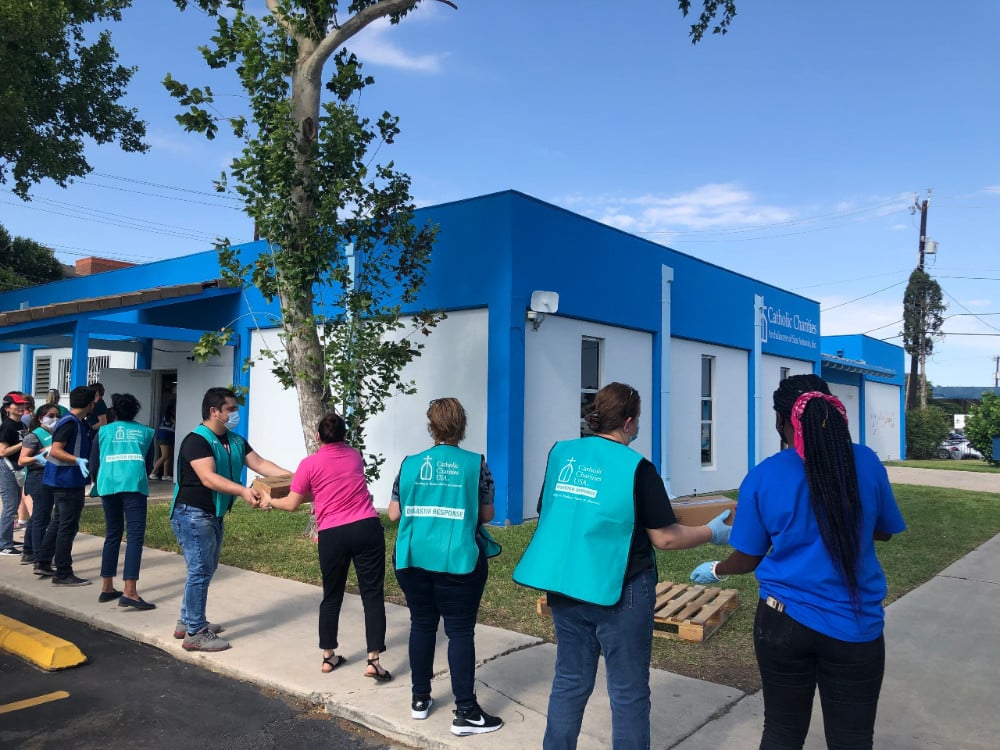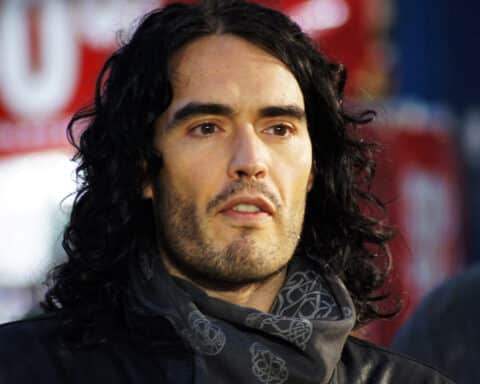The Athanasian Creed describes Christ’s divinity and human nature in a beautiful way by saying, “For as the reasonable soul and flesh is one man; so God and Man is one Christ; Who suffered for our salvation; descended into hell; rose again the third day from the dead.”
The timeless creed describes the incarnation of Christ and the nature he took on when he became human. Human beings take a unique place in creation. We are made in the image of God with an intellect and a will, and we are also made of matter, unlike the angels. While we as humans are not divine, Christ, in his nature, is both fully God and fully man. In a similar way, the Church, the mysterious Body of Christ, echoes the same hypostatic nature of being both human and divine. The Second Vatican Council elaborated on this phenomenon in Sacrosanctum Concilium, its constitution on the Church’s liturgy. The document describes “the essence of the Church” as “both human and divine, visible and yet invisibly equipped, eager to act and yet intent on contemplation, present in this world and yet not at home in it” (No. 2).
The recent shootings and attacks on human life within the past year — in Buffalo, in Uvalde, in Chicago and in so many other places — have challenged me to think about the ways in which our fallen world needs the Church. In a society filled with human error and sin, we desperately need the divine to join with the human. When Christ established the Church, he not only gave humans access to the divine through the sacraments (most especially the Eucharist), but he tasked the Church with the mission of being his witness. In short, Christ feeds us with his body and blood, fully human and fully divine, so that we may go out into the world and bring those who are fully human into the divine life.
Christ feeds us with his body and blood, fully human and fully divine, so that we may go out into the world and bring those who are fully human into the divine life.
So how can the Church be a more effective witness in a society that so desperately needs it? How can we spread the truth of the divine and bring other people into participation in the Church’s witness? It all comes down to consistently practicing our faith, receiving the sacraments and living our faith daily with an everyday conversion. When we do this, we are strengthened and transformed by the Eucharist and the other sacraments to go out into society and tend to those in need of the gifts of the Church. But what does that look like?
One essential aspect of any testimony is the credibility of the one giving it. To illustrate the importance, think of a witness in a courtroom who has even one charge against them of having bad character. Even if the witness is exceptionally trustworthy, if they appear untrustworthy to others, their credibility as a witness can be damaged. The same principle applies to the Church in her witness.
Christ established the Church as a credible witness to the world. In Scripture, a witness is considered credible in the presence of two or more (cf. Mt 18:16). In order to illustrate this point succinctly, the Book of Revelation refers to the Church as “The Two Witnesses” to demonstrate that her testimony to the life, death and resurrection of Christ is a valid one (cf. Rv 11).

Sometimes, however, the Church’s credibility to the world can be damaged when members of the body don’t practice their faith in a manner consistent with its teachings. This can happen with both the laity and the hierarchy. For example, when the clergy abuse scandal rocked the Church again a few years ago, it upset both believers and secular society. Even though the Church has a strong moral teaching on sexual assault, when news of the scandal surfaced, the Church’s credibility didn’t seem valid concerning its teachings about Christ. As a result, many people were deterred from sharing their faith, and some even left the fold. Even if only a small percentage of priests weren’t practicing their faith consistently, the whole body suffered.
Another example is when Catholic politicians don’t consistently practice a pro-life ethic. When Catholic lawmakers don’t uphold the dignity of humans by taking a pro-abortion position, or high-profile Catholic clergy who sweep the pro-life issue of racism under the rug, the Church and her witness is impacted negatively.
The ouroboros is an ancient symbol that depicts a serpent eating its own tail. Traditionally, many cultures used the symbol as a representation of the eternal cycle of rebirth and destruction. The symbol can be used as a metaphor to describe what happens when mankind deviates from objective truth. For example, when it comes to the sanctity of human life, some Catholics will emphasize abortion while dismissing racism and gun violence. Because one of the puzzle pieces is missing, the endless cycle of dignity of human life continues to be violated. In the same way, some Catholics who are anti-racist and anti-gun violence may not emphasize the truth that abortion violates the sanctity of human life as much as the other issues. The vicious cycle of not recognizing the dignity of human life fully and wholly will always result in well-meaning intentions devouring itself, paving the way for violence by not emphasizing the full and entire truthful picture.
In the words of Pope Francis, “It is time to say, ‘Enough!'” We as Catholics have the fullness of the truth, and with it, the Church — all of us! — can help to pull society out of the self-devouring ouroboros of sin by sharing the truth of our faith and joyfully evangelizing about the saving nature of Jesus Christ and the sacraments he gave to us. When our laity allows politics to decide which human rights issues to emphasize, when our Catholic politicians vote to loosen restrictions on guns and abortions, when news about sex scandals rock the Church and our parishes are heavily racially divided, not only do we as the Body of Christ suffer but so do we as a wider society. As Catholics, we are tasked with making real and good changes in the world and spreading the truth of our faith. When we make Christ the focus and truly come together in authentic unity, we — with Christ working through us — will have the power to change our culture. But first, we must lead by example.
Father Josh Johnsons’s book, “On Earth as It Is in Heaven” (Ascension, $16.95), makes a point that when Catholics discern their charisms and come together and use them effectively, real change comes about in the world. If Catholics consistently practice their faith, are sustained by the Eucharist and work together as a community using our holy gifts, we can truly make a difference in our society that better promotes a healthy, balanced and consistent culture of life for the good of humanity.
Briana Jansky writes from Texas.





